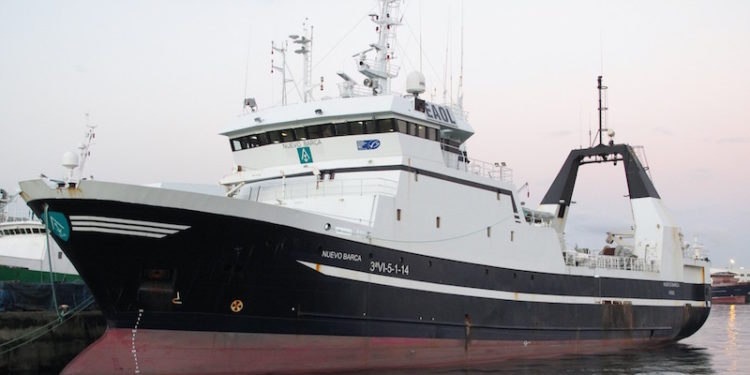Members of Europêche today met DG MARE director general Joao Aguiar Machado to express their concerns over the current negotiations regarding possible restrictions on bottom trawling in the deep sea which could see a ban from 800m introduced, even for already regulated areas in international waters.
The members of Europêche explained that the Commission proposal would contradict the policy that the EU has followed for more than ten years internationally in the UN, FAO and within RFMOs with no provision for a fishing ban below 800 metres. It would also undermine the legitimacy of RFMO measures, greatly supported by the EU, to minimise the impacts of bottom fishing on vulnerable marine ecosystems (VMEs) and would not offer any additional protection in international waters off the North-East Atlantic since bottom fishing only currently takes place in 3% of this area. Europêche support measures already in place in the NEAFC regulated area, such as freezing the footprint of deep sea activities (restricting operations to areas that are already fished), the move-on rule when encountering VMEs and temporal and spatial closures. These measures protect VMEs, increase co-operation between the industry and scientists and help create a level playing field for deep-sea fishing.
Europêche president Javier Garat stated that the proposal would create an unlevel playing field.
‘If we include non-EU waters in the scope, the EU would still continue to import deep sea fish products caught by third countries not under the ban, which would be discriminatory and inconsistent with what the EU is trying to promote,’ he warned.
‘Similarly, it would be perfectly legal for an EU consumer to continue to buy an imported fish product caught by a deep-sea vessel from a third country. Non-EU vessels in those waters would have the opportunity to increase their pressure on deep sea stocks, leading to increased pressure outside of the EU’s control. The EU has catastrophically failed in trying to export their stringent measures to RFMOs where other countries do not accept them and prefer more workable, rational legislation.’
Additionally, Europêche believes that the proposed ban of 800m is an arbitrary figure since it has no scientific basis and it would be irresponsible to base complex fisheries legislation on anything but sound science, especially when the results cause such a huge impact to fishermen.
Furthermore, alternative fishing methods are not possible for many EU vessels and in many cases the target species (such as angler fish) cannot be caught in commercial quantities with gears such as longlining. A depth ban would also stop fishing activities in many areas that do not have VMEs and would increase fishing pressure in other areas through the displacement of vessels into less fished areas.









